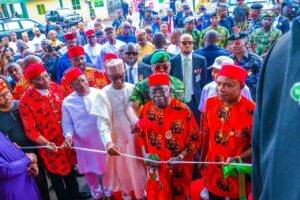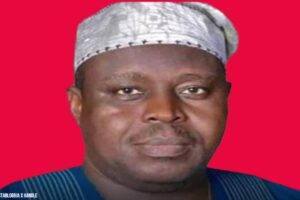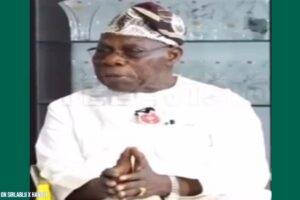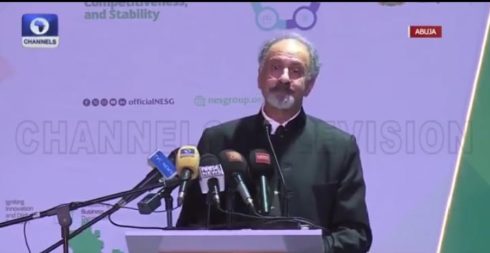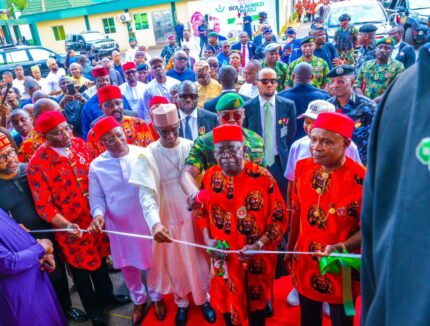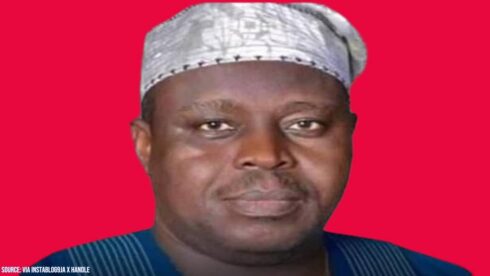At a recent high-level economic forum, Mr Gill, Vice President of the World Bank, emphasized the necessity for Nigeria to maintain its current economic reforms for at least the next decade and a half. In his address, he highlighted the importance of consistency in policy implementation to achieve sustainable economic growth, stating that “Nigeria will need to stay the course of current economic reforms for at least the next 10 to 15 years to transform its economy.” The remark sparked an immediate reaction from the audience, reflecting a spectrum of opinions on the feasibility and desirability of such a prolonged reform agenda.
Mr Gill’s question, “I don’t know if you agree with me or disagree,” was met with mixed responses, ranging from applause to murmurs of dissent. This reaction underscored the existing debate on the direction and pace of Nigeria’s economic policies. While some experts agree with the World Bank’s stance, others argue that additional strategies may be required to ensure inclusive growth and reduce socio-economic disparities.
Key Challenges Facing Nigeria’s Economy
Nigeria, Africa’s largest economy, is grappling with multiple economic challenges, including rising inflation, high unemployment, and a volatile exchange rate. The country’s dependency on oil revenue has left it vulnerable to global market fluctuations, making diversification a critical need. Moreover, the COVID-19 pandemic further exacerbated these issues, pushing millions into poverty and weakening the nation’s fiscal standing.
Structural reforms initiated by the government, such as the removal of fuel subsidies and efforts to strengthen non-oil sectors like agriculture and technology, are seen as steps in the right direction. However, critics argue that these reforms alone are insufficient. Deep-rooted corruption, poor infrastructure, and inefficient governance continue to hamper the effective implementation of economic policies, raising doubts about whether the current trajectory can deliver long-term results without significant modifications.
Mr Gill: The Importance of Policy Continuity
In his speech, Mr Gill stressed the importance of policy continuity, arguing that inconsistent policies have historically derailed Nigeria’s economic progress. Frequent changes in government policies, sometimes driven by political considerations rather than economic rationale, have stifled growth and discouraged foreign investment. “Staying the course for the next 10 to 15 years is essential if Nigeria is to see meaningful transformation,” Mr Gill emphasized.
According to economic experts, consistent policy execution is crucial for long-term success. Investors need a stable environment to commit resources to long-term projects, and businesses thrive in economies with predictable rules. Mr Gill’s statement aligns with these principles, but the challenge remains whether Nigeria’s political environment will support such consistency in the coming years.
Mixed Reactions from Economic Stakeholders
The reaction to Mr Gill’s statement from local and international stakeholders has been mixed. Some, particularly foreign investors and international financial institutions, have welcomed the World Bank VP’s remarks, viewing them as a call for stability and predictability in Nigeria’s economic framework. They argue that long-term reforms are necessary to modernize the country’s economy, attract foreign direct investment (FDI), and stimulate sustainable growth.
Conversely, others have expressed skepticism about whether Nigeria can realistically sustain reforms for such an extended period. Some local business leaders and civil society groups have raised concerns about the immediate economic hardships that current reforms, such as subsidy removals, are causing for ordinary Nigerians. There is also a growing fear that prolonged austerity measures may exacerbate social tensions, especially if there are no visible short-term benefits for the general populace.
Global Implications of Nigeria’s Economic Reforms
As the largest economy in Africa, Nigeria’s economic trajectory holds significant implications for the broader continent. The country’s performance is closely watched by international investors and regional partners, particularly given its role in the African Continental Free Trade Area (AfCFTA). Successful reform could position Nigeria as a regional economic powerhouse, capable of driving growth and innovation across Africa.
However, failure to stay the course could result in long-term stagnation, not only for Nigeria but also for other African economies dependent on its success. Mr Gill’s remarks, therefore, serve as a reminder of the stakes involved. For Nigeria to transform its economy and unlock its full potential, it must navigate a delicate balance between short-term pain and long-term gain.
Can Nigeria Sustain Economic Reform Momentum?
Looking ahead, the question remains: Can Nigeria sustain the momentum of its economic reforms for the next 10 to 15 years? Political will, leadership, and public buy-in will be critical in determining the success of these long-term initiatives. The current administration’s push for reforms is commendable, but maintaining public support will require clear communication of the long-term benefits and visible progress in areas such as job creation and infrastructure development.
Mr Gill’s assertion points to a tough but necessary journey ahead for Nigeria. The nation has the potential to transform into a global economic leader, but the next decade will be critical in determining whether it can overcome internal challenges and external pressures to achieve this vision.
Table of Contents
Discover more from OGM News NG
Subscribe to get the latest posts sent to your email.


